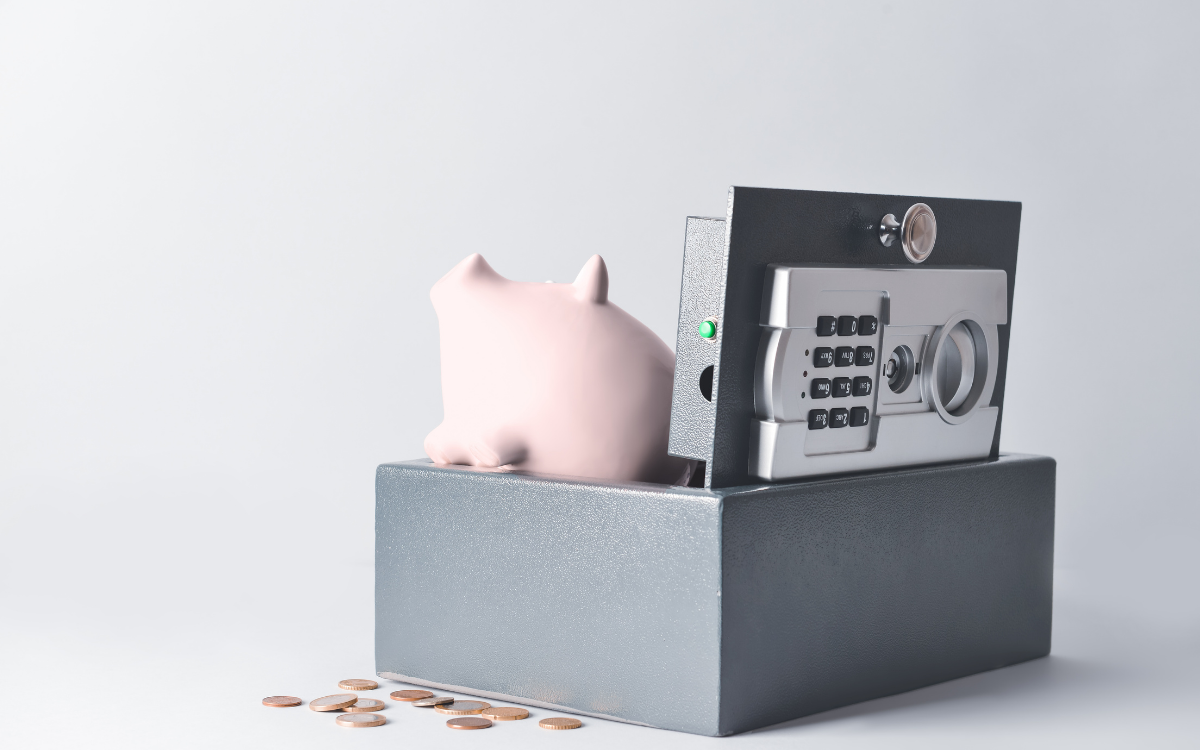The word “safe” can be defined as a risk-free state, a danger-free zone, or a state or area in which there is minimal to no chance of damage or harm. Therefore, a “safe,” which is a secured container used for the purpose of storing important items, is aimed at keeping those items risk-free and away from damage.
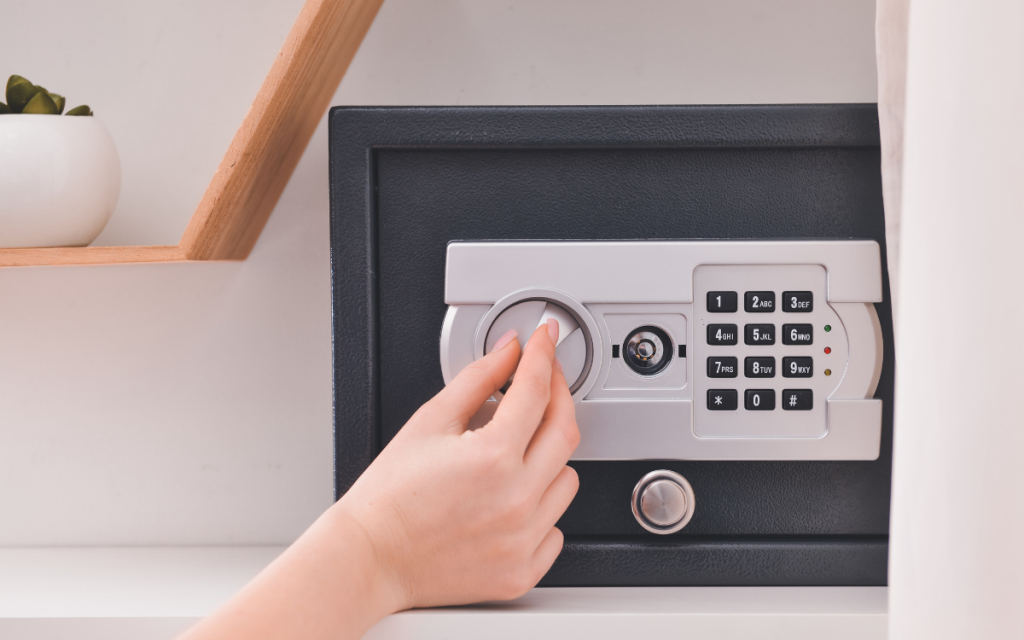
A home safe is generally a small metal box with heavy-duty side panels and an equally secured door. The door usually has a number pad or dial knob to allow the owner to set a passcode for security.
A safe deposit box, on the other hand, is generally a small container kept securely in the confines of a bank or a private vault. This box generally has two keys where the owner keeps one and the bank keeps the other. Both keys are needed simultaneously to open the box at any given time. More sophisticated boxes may have biometrics such as fingerprints or other scans, but it still often requires two people to access it. At a private facility like Safe Deposit Center, only the box renter has keys.
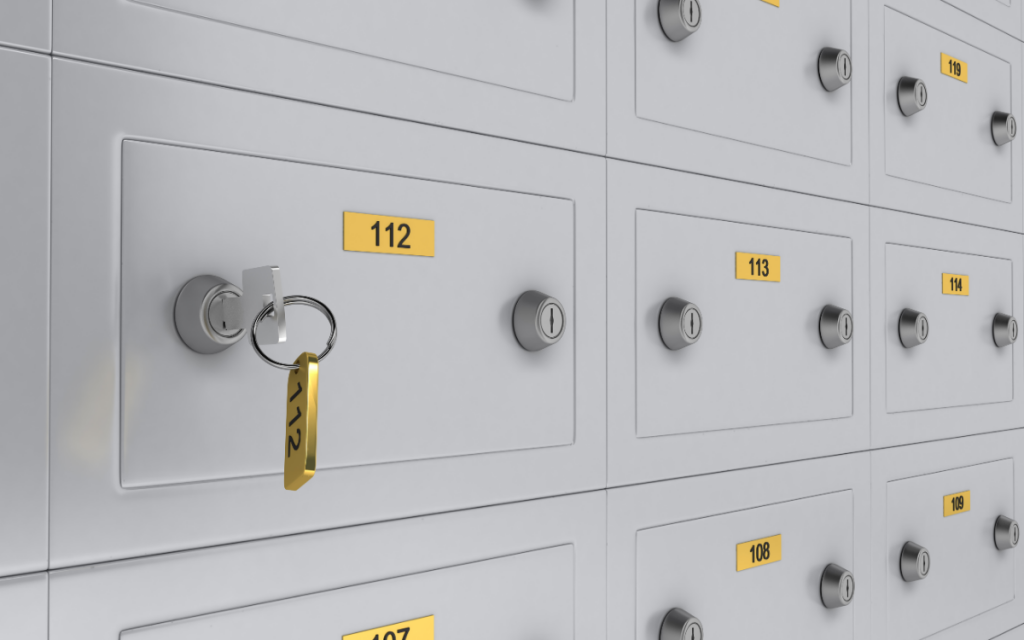
Some people prefer to keep their valuables closer to home so they choose to use a home safe, while others find that a bank or private facility is more secure, so they use a safe deposit box instead. There are pros and cons for each, but ultimately, a safe deposit box is a no-brainer if you are seeking security and piece of mind for your valuables.
The Pros of Home Safes
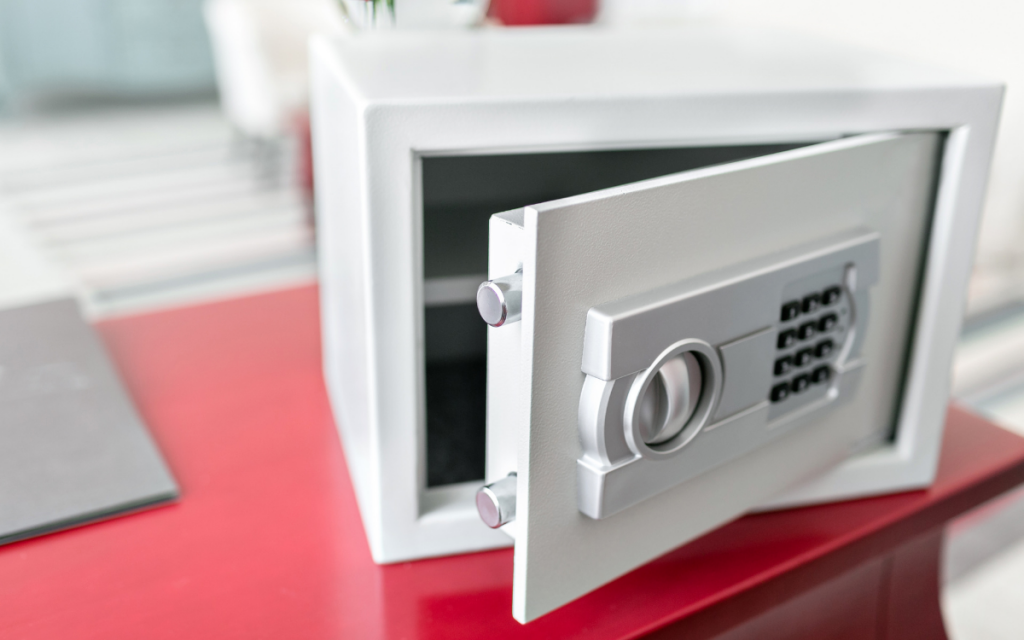
Mobility
Home safes are usually relatively small, which means that if the owner needs to move to a new home, they can just pick it up and go. Some homeowners will build it into the wall, but it’s still generally pretty easy and convenient to move a safe.
Quick Access
This probably is the biggest advantage of a home safe. It’s right there and easily accessible in the event of an emergency. It takes minutes to open it and retrieve your items to be on your way. This is often ideal for passports, medical records, medical insurance, and other similar items.
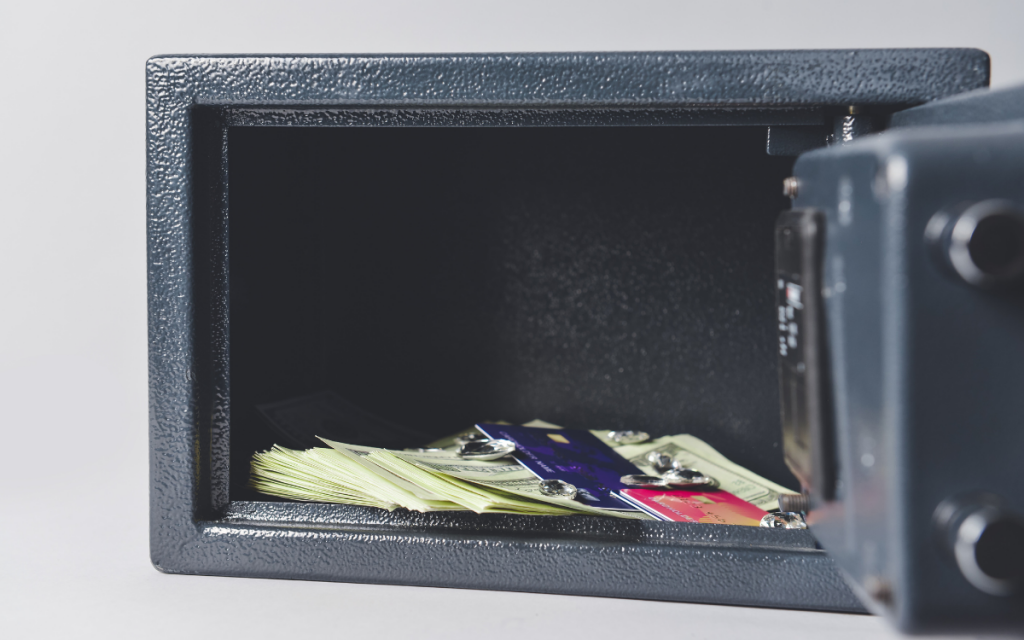
Flexibility
When your safe is stored in your home, there is no one to put limitations on what you can and cannot keep in your safe. In short, as long as it fits, you can store it in your safe without regard for anyone else’s opinions and suggestions.
Grouped Insurance
If your home and its contents are insured, it would most likely cover the contents of your safe as well — as long as they are declared in the home’s contents. There would be no need to get it insured separately, unless the items within are extremely valuable.
The Cons of Home Safes
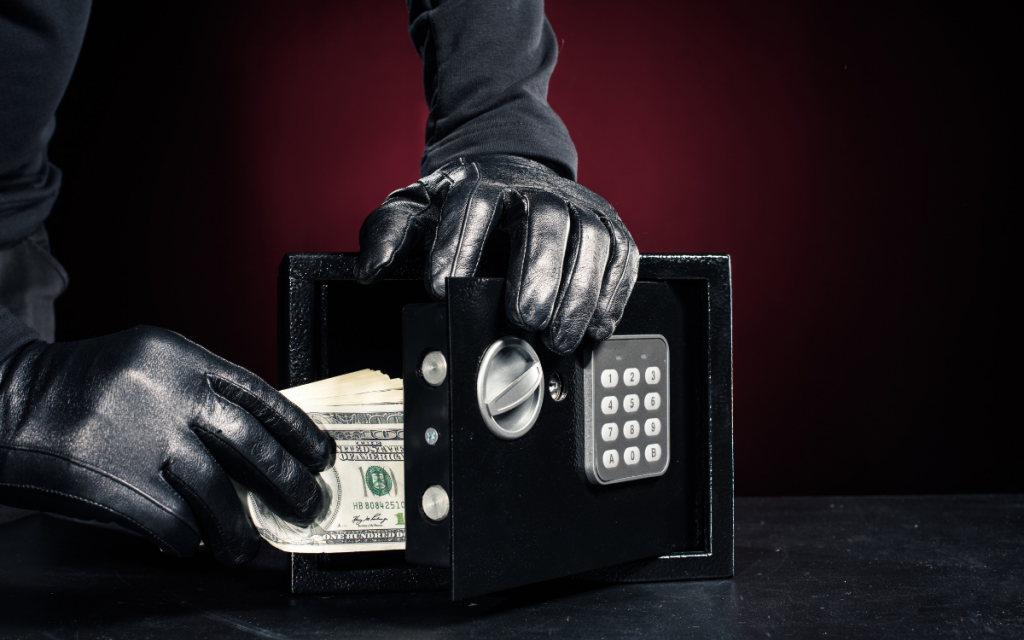
Lack of Security
The safe may seem like a secure option for your valuables. But, a home safe isn’t always as secure as it seems. For instance, a smaller-sized safe could be targeted by burglars.
Lack of Durability
There are nature’s elements to consider that may affect your home safe. While the vast majority of safes on the market are water- and fire-resistant, they are not fully water- or fire-proof. This means that in the case of a flood or fire, the risk of some or all of your items becoming damaged is still pretty high. Also, the level of durability will mostly come down to the quality of the safe, with some higher-end safes costing thousands of dollars.
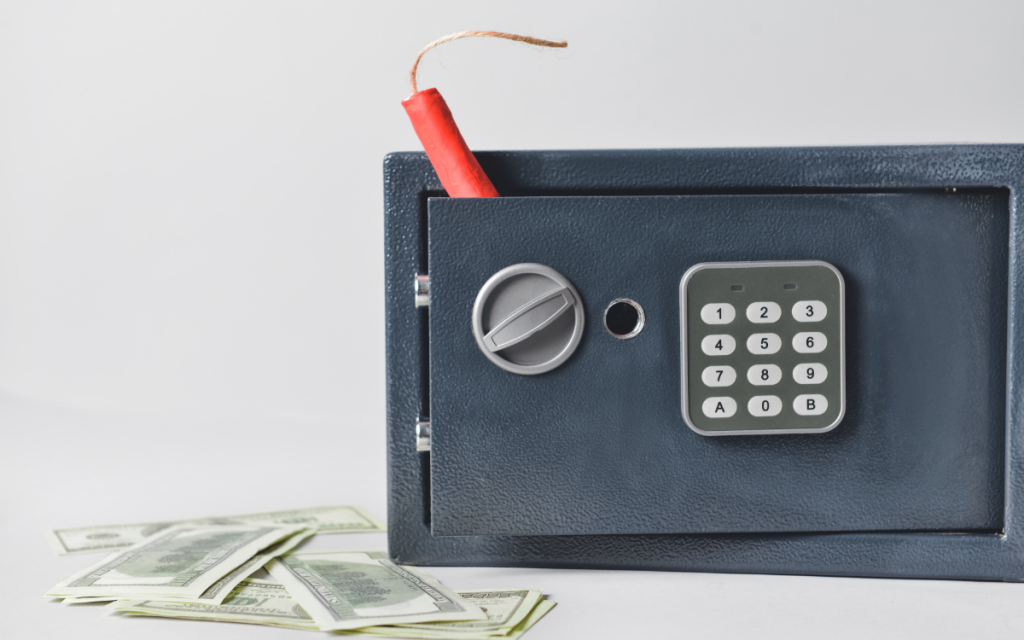
No Legal Protection
Unless you have left the code or combination to access the safe with someone you trust, the safe could be inaccessible if you pass away. If you keep items you want to pass on to beneficiaries, it would be difficult. There would be no legal ground to make a claim for its contents.
The Cons of Safe Deposit Boxes
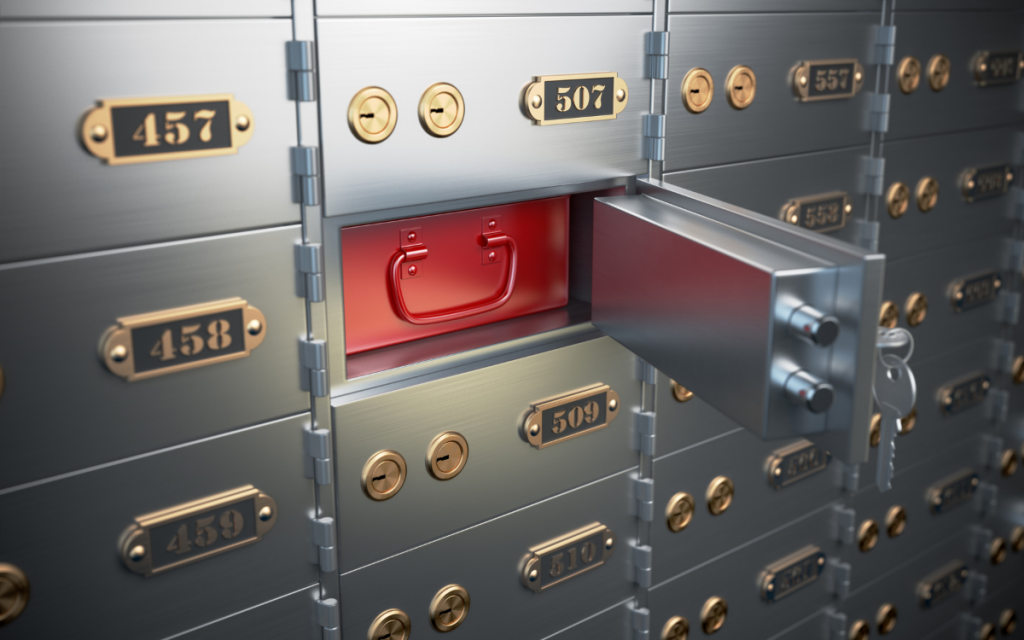
Proximity
The main con of having a safe deposit box is not having it in your home to access instantly at any time should the need arise. Many private safety deposit box rental facilities offer amenities to compensate, such as extended access hours.
Recurring Cost
Safe deposit boxes usually incur a monthly or an annual fee, as opposed to an in-home safe that you pay for once and is yours for as long as you choose to keep it. These fees are relatively low, and depending on the length of time you need to rent a box, may end up costing less than purchasing a home safe.
The Pros of Safe Deposit Boxes
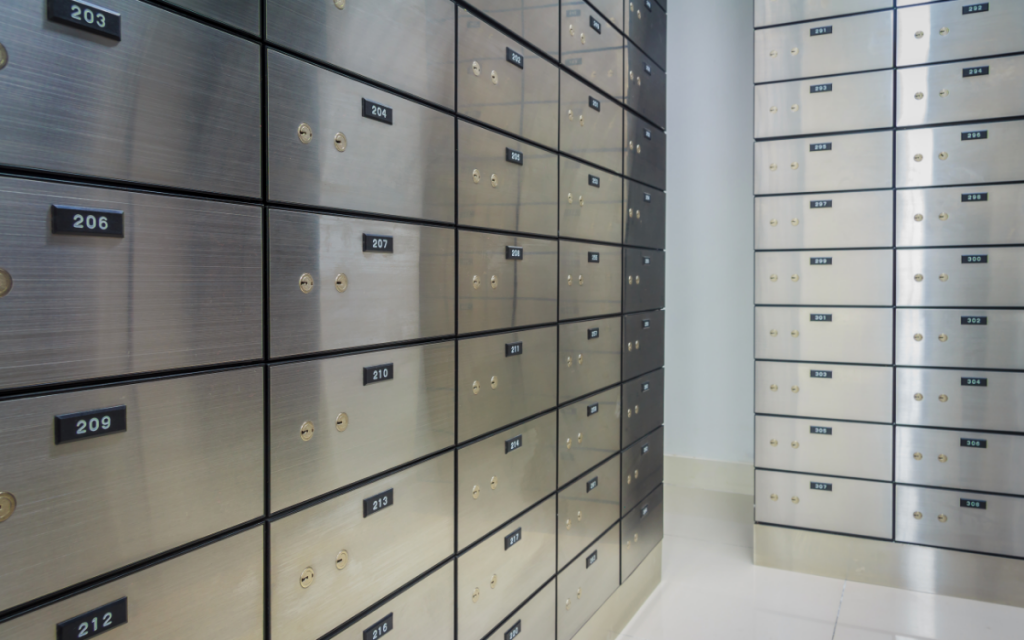
Consistency in Quality
One of the great things about safe deposit boxes is their consistency. Financial institutions and private vaults invest in durable boxes that are waterproof and fireproof, standing a greater chance of surviving a natural disaster than if it was at your home.
Insurance and Confidentiality
While it is true that the contents of your safe-deposit boxes are not automatically covered by your deposit insurance, it makes it so much easier to insure the box itself based specifically on its contents. This means that if you have an extremely valuable item such as parts of a collection or family heirloom, you can guarantee its security with the Safe Deposit Box Insurance Company (SDBIC) without needing to disclose your items.
Safe Deposit Center doesn’t report contents of the boxes to any government agency, and you can even safely store firearms. If you try to include the items of your home safe in your homeowner’s insurance, you will need to declare those items in order to get them covered. So if coverage and privacy are what you are looking for, a safe deposit box is the better option.
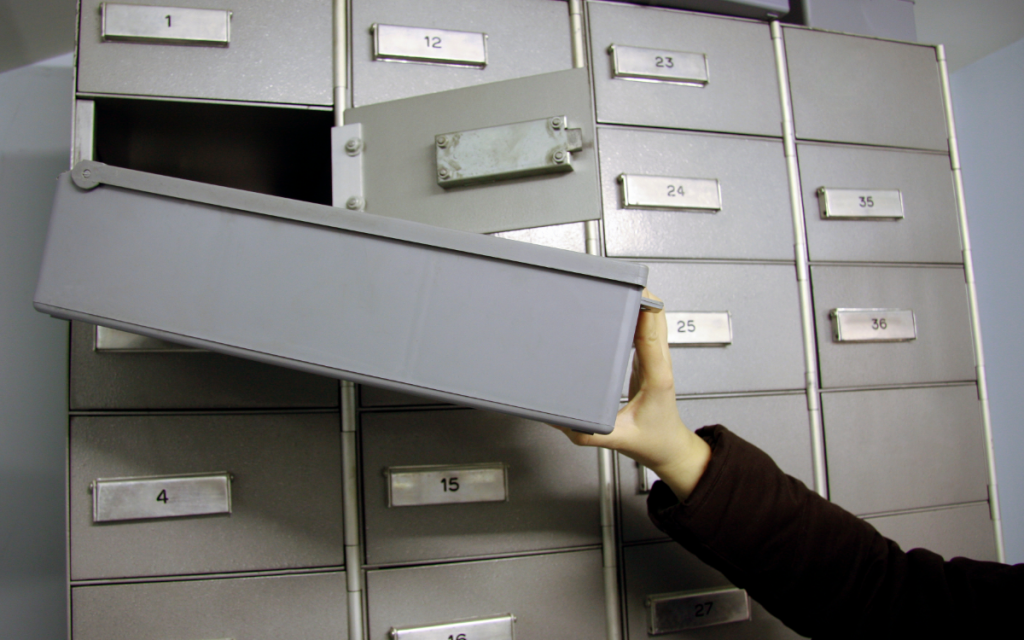
Security
Banks and other financial institutions do experience disasters and robberies, but when they occur, commercial insurance covers losses. Banks and private vaults are automatically fitted with security measures that do not require you to make additional payments. This is opposed to your home where you would need to pay for home security to ensure that your home safe and/or its contents are not stolen, and insurance to cover your losses in such an event.
It doesn’t have to be either/or: having a home safe doesn’t preclude one from renting a safe deposit box. However, if the items that you plan to store in a safe are highly valuable, either with monetary or sentimental value, you should consider the most secure option.
You may save money by not selecting a safe deposit box, but then you would still need to pay to beef up your home security which could be more costly. If you want to store items that you will need to access frequently, then a home safe could suffice. If you are looking for long-term storage of valuable items and documents, a safe deposit box is the preferred way to go.
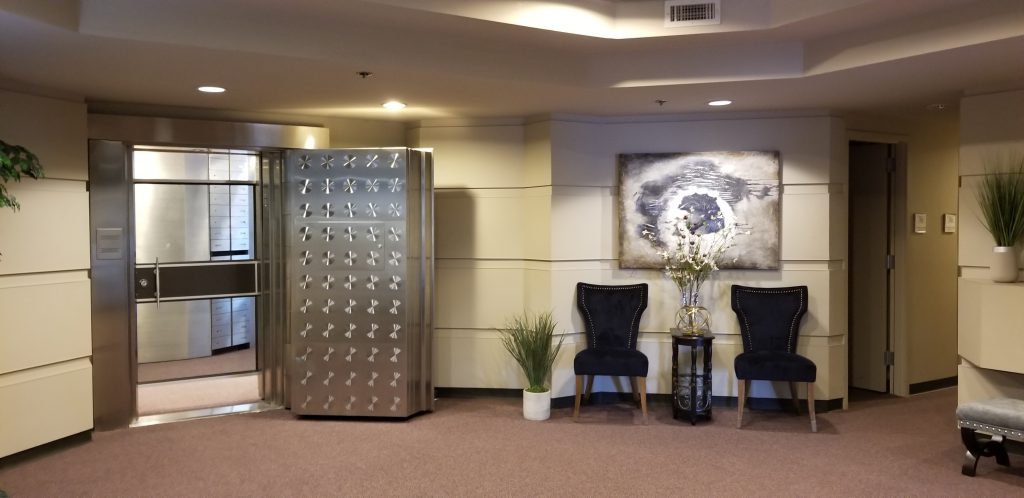
If you are looking for a secure place to store your hard drives or other valuables, Safe Deposit Center can help. At Safe Deposit Center, we offer a variety of safe deposit box sizes as well as open vault storage to accommodate your secure storage needs. For more information about our secure, private storage facility please visit https://safedepositcenterwa.com/.

